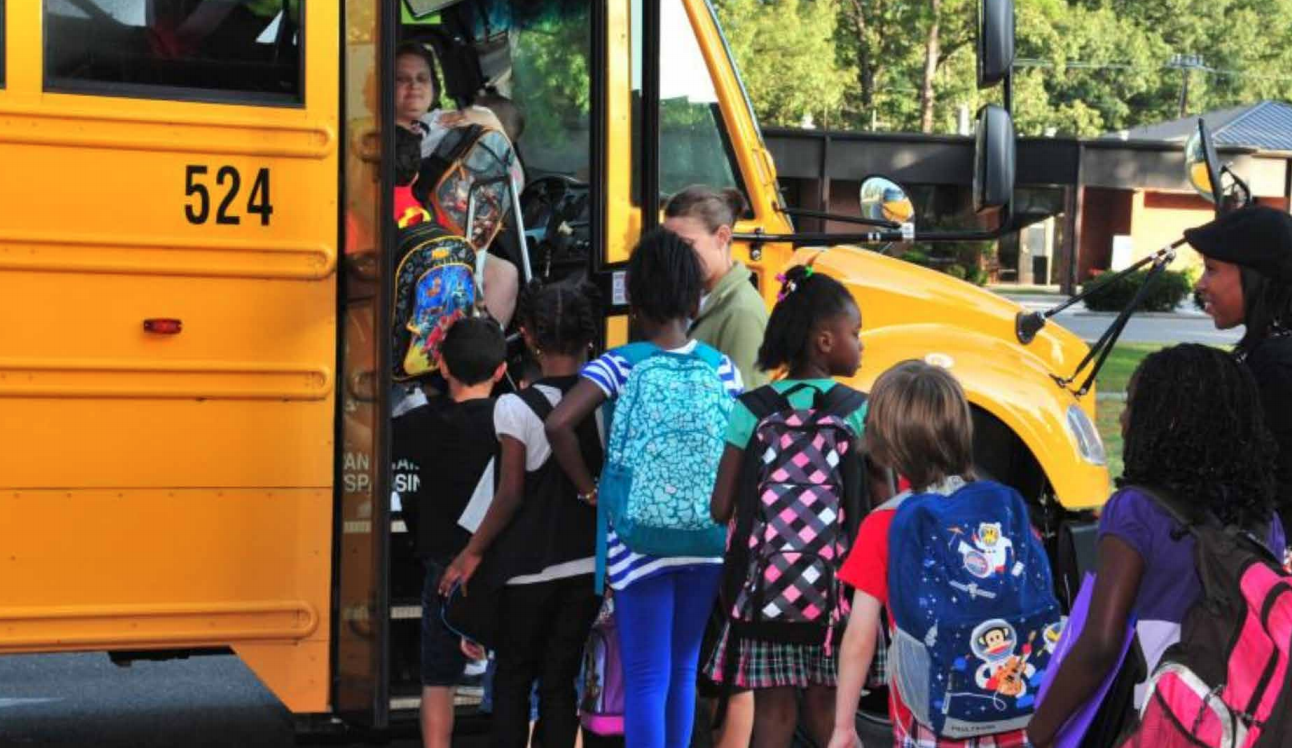MASSPIRG testimony in support of electric school buses and personal electric vehicles
MASSPIRG urges Joint Committee on Telecommunications, Utilities and Energy to support An act to promote electric vehicle fleets by 2035 (HB 3255/SB 2139) and An act promoting zero-emission vehicles (HB 3347/SB 2151), which are critical to building a healthier and more sustainable transportation future for all residents of Massachusetts, especially children.

In support of:
An Act to Promote Electric Vehicle Fleets by 2035 (HB3255 and SB2139), Representative Christine Barber and Senator Joe Boncore
An Act Promoting Zero-Emission Vehicles (HB3347 and SB2151), Representative Joan Meschino and Senator Brendan Crighton
July 30, 2021
To Chairman Barrett, Chairman Roy, and members of the committee:
Thank you for the opportunity to present this testimony in favor of the following bills:, An Act to Promote Electric Vehicle Fleets by 2035 (HB3255 and SB2139), introduced by Representative Christine Barber and Senator Joe Boncore, and An Act Promoting Zero-Emission Vehicles (HB3347 and SB2151), introduced by Representative Joan Meschino and Senator Brendan Crighton. These bills are critical to building a healthier and more sustainable transportation future for all residents of Massachusetts, especially our children.
Our transportation system is wreaking havoc on our climate, as it now accounts for 40% of the greenhouse gas emissions produced in Massachusetts, more than any other source. Transportation is also our country’s single largest contributor to the global climate crisis. That means not only are our transportation decisions threatening our state’s 1,500 miles of coastline with increased flooding, they are also causing more extreme temperatures, shifting weather patterns and an increased prevalence of deadly diseases around the world.
On top of destroying our environment, transportation is also threatening our state’s public health, particularly that of our children. Each year, approximately 325 people die in vehicle crashes in the Commonwealth annually, while hundreds more suffer from the adverse health effects of air pollution, including asthma and respiratory diseases.
An Act to Promote Electric Vehicle Fleets by 2035 (HB3255 and SB2139) will electrify our state’s public and private fleets, including our state’s school buses, by setting intermediate electrification targets en route to a full transition to zero-emission electric fleets by 2035.
This legislation will finally rid us of harmful diesel and diesel-hybrid buses, which currently comprise nearly 95% of our school bus fleet. Not only do these diesel-powered buses increase global warming emissions, they also release high levels of harmful particulate matter and toxins that have been linked to several serious health risks, including increased rates of respiratory illness and cancer, as well as poor academic performance.
Fortunately, there is a significant amount of momentum behind zero-emission electric school buses right now, as manufacturers are ramping up production and rapidly expanding the number of available models. Lion Electric recently announced plans to build the largest factory for medium-duty and heavy-duty electric vehicles in the country, which when fully operational, will produce 20,000 electric school buses and heavy duty trucks annually.
In addition to being increasingly accessible, electric school bus technology is improving rapidly while simultaneously getting cheaper. Lithium-ion batteries have fallen in price nearly 90% over the last decade and now allow electric school buses to travel between 150 to 300 miles on a single charge. Blue Bird, one of the leading electric school bus manufacturers, now estimates that their buses can cover 90% of school bus routes across the country with just an overnight charge and nearly 100% of routes if the bus can charge midday.
With increasingly flexible charging options, which now include both fast DC chargers – which supply a full charge in about 4 hours and can be great for on-route charging – and slower AC chargers – which take approx. 8 hours and are best suited to overnight charging – school districts throughout the Commonwealth’s diverse communities now have the tools to successfully roll out electric school buses.
Finally, electric school buses make financial sense, saving school districts thousands of dollars over the lifespan of each bus, due to decreased fueling, maintenance and operating costs. Unfortunately, as we outlined in our recent report, Accelerating the Transition to Electric School Buses, one of the primary barriers to electric school bus adoption is the initial price tag of new electric school buses. In order to overcome this barrier, we must encourage public utilities to help school districts finance the upfront purchasing costs of new electric buses.
Utilities have a lot to gain from the large-scale adoption of electric school buses, and could play a major role in supporting the transition to a fully electric fleet. Electric school buses have the potential to expand and stabilize our electric grid by functioning as mobile batteries, providing surplus energy storage through vehicle-to-grid technology during peak usage hours, extreme weather events and power outages.
By providing discounted rates on electric school bus charging and building charging infrastructure, utilities can help speed the adoption of electric school buses across the Commonwealth, improving public health and making our state more climate resilient. Utilities can also support electric school buses by investing in infrastructure for bus charging in depots and on routes and by introducing smart charging systems to maximize integration of renewable energy.
In addition to rapidly electrifying our school bus fleet, it is critical that we incentivize the adoption of personal electric vehicles (or EVs) in Massachusetts, especially for low and moderate income drivers. Not only are EVs cheaper to operate and maintain than traditional fossil-fuel powered vehicles, they now come in an increasing number of makes and models. This expanded choice, combined with increasing battery range – now well above 200 miles per charge on average – and falling prices – now approximately $35,000 on average before incentives – will continue to make them more appealing to the average consumer.
An Act Promoting Zero-Emission Vehicles (HB3347 and SB2151) will help us speed up EV adoption by expanding the MOR-EV program and establishing a new grant program designed to ensure that residents across the Commonwealth, including those in rural and environmental justice populations, have equitable access to point-of-sale rebates for new and used zero-emission vehicles.
Along with lowering the barriers to purchase, we also need to address the limited access to charging in our state, which can lead to range anxiety, especially for renters and rural residents, and can prevent Bay Staters from adopting EVs. By connecting utilities with EV owners, as this legislation proposes, we can increase the amount of at-home Level 1 charging, faster Level 2 charging units and on-the-go charging infrastructure, all of which will make owning an EV more appealing for more residents of the Commonwealth, regardless of where they live.
We have the opportunity to make Massachusetts a leader in sustainable transportation and more importantly, to build a better, cleaner and healthier future for our children and grandchildren. Transitioning to zero-emission electric school buses and vehicles will not only improve public health across our state, but will also be a crucial step if we are going to reach our state’s climate goals, which call for Massachusetts to be net-zero by 2050.
These bills will help us do just that, by ensuring that all residents of the Commonwealth have access to clean modes of transportation, thereby creating a new “normal” in which the easiest and cheapest ways to get around are also the healthiest and most climate friendly. Let’s not pass up that opportunity. For this reason, I urge you to report HB3255, SB2139, HB3347 and SB2151 favorably out of this committee without delay.
Thank you for your hard work on these bills and for considering our testimony.
Sincerely,
John Stout
MASSPIRG Transportation Advocate
[email protected] – (857) 285-3605
Topics
Authors
John Stout
Find Out More

Want a simple way to use less plastic at home? Ditch the detergent bottle

More joy, less waste this holiday season

National web briefing tackles harmful pollution from lawn equipment

